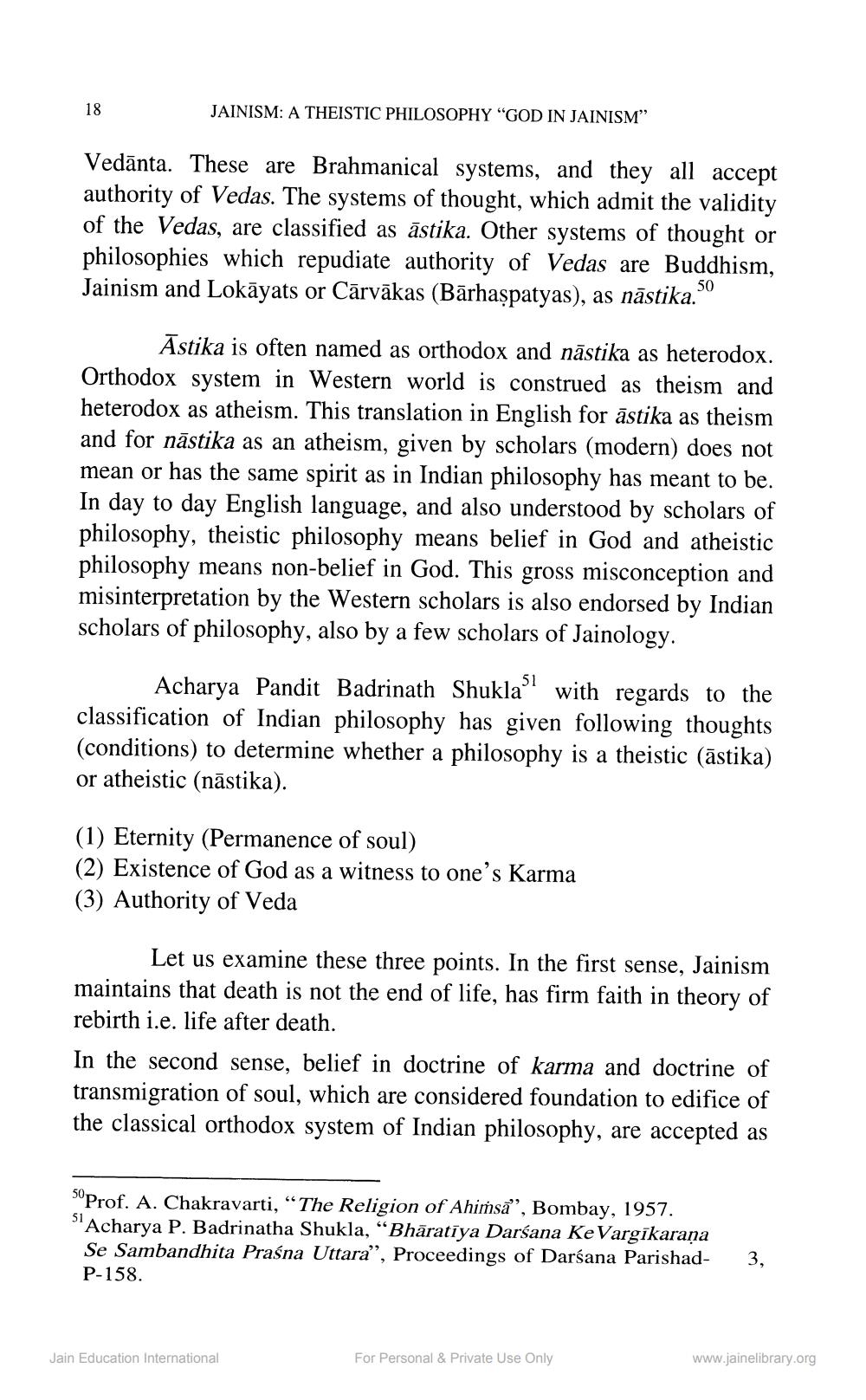________________
18
JAINISM: A THEISTIC PHILOSOPHY “GOD IN JAINISM"
Vedānta. These are Brahmanical systems, and they all accept authority of Vedas. The systems of thought, which admit the validity of the Vedas, are classified as āstika. Other systems of thought or philosophies which repudiate authority of Vedas are Buddhism, Jainism and Lokāyats or Cārvākas (Bārhaspatyas), as nāstika."
Āstika is often named as orthodox and nāstika as heterodox. Orthodox system in Western world is construed as theism and heterodox as atheism. This translation in English for āstika as theism and for nāstika as an atheism, given by scholars (modern) does not mean or has the same spirit as in Indian philosophy has meant to be. In day to day English language, and also understood by scholars of philosophy, theistic philosophy means belief in God and atheistic philosophy means non-belief in God. This gross misconception and misinterpretation by the Western scholars is also endorsed by Indian scholars of philosophy, also by a few scholars of Jainology.
Acharya Pandit Badrinath Shukla with regards to the classification of Indian philosophy has given following thoughts (conditions) to determine whether a philosophy is a theistic (āstika) or atheistic (nāstika).
(1) Eternity (Permanence of soul) (2) Existence of God as a witness to one's Karma (3) Authority of Veda
Let us examine these three points. In the first sense, Jainism maintains that death is not the end of life, has firm faith in theory of rebirth i.e. life after death. In the second sense, belief in doctrine of karma and doctrine of transmigration of soul, which are considered foundation to edifice of the classical orthodox system of Indian philosophy, are accepted as
5°Prof. A. Chakravarti, “The Religion of Ahimsă”, Bombay, 1957. Acharya P. Badrinatha Shukla, “Bhāratīya Darśana Ke Vargīkarana Se Sambandhita Praśna Uttara”, Proceedings of Darsana Parishad - P-158.
3,
For Personal & Private Use Only
Jain Education International
www.jainelibrary.org




